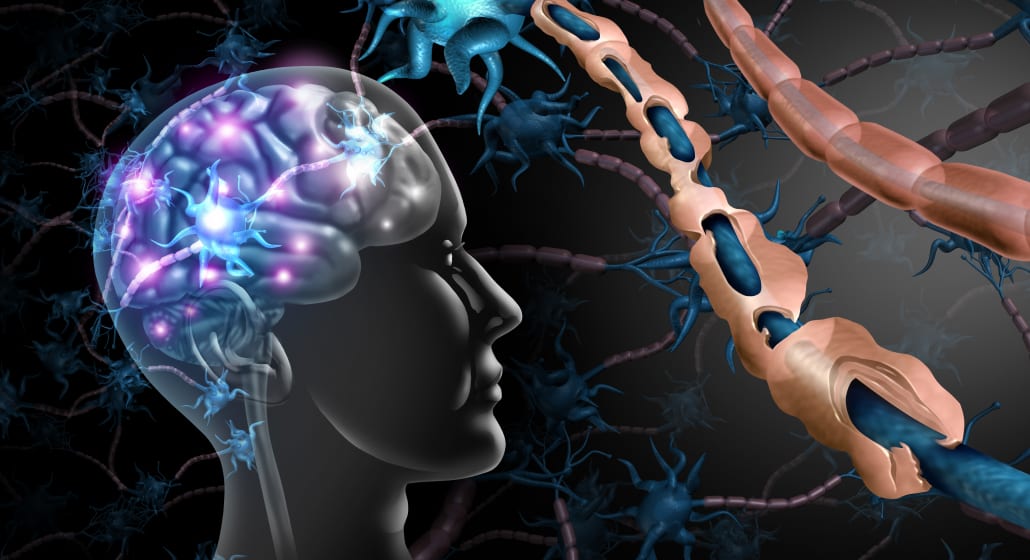What Are the Benefits of Autologous Mesenchymal Stem Cell Transplants for People with Progressive Multiple Sclerosis?
Recent research has shown that mesenchymal stem cells (MSC) deliver neurotrophic and immunomodulatory effects. Located in fat, bone marrow and various other bodily tissues, MSCs also promote hematopoiesis. And there’s now evidence to suggest that MSC transplants can alleviate the symptoms of progressive and active multiple sclerosis.
Petrou et al. undertook a study to ascertain the efficacy of MSC transplantation as a treatment for MS. A total of 48 patients suffering from progressive MS were carefully evaluated after being administered an autologous MSC transplant — either intravenously (IV) or intrathecally (IT). The goal of the study was to discover whether this regenerative approach offers therapeutic benefits for long-term active MS sufferers.
Participants in the trial were randomly selected for three groups, and they were treated with either MSCs (IV or IT) or placebo injections. After six months, half of the MSC patients were given a further MSC treatment, and the other half were given placebo shots. The group given placebo shots during the first round of treatments were subjected to the same process. After six months of the trial, half the participants had either been treated with IV MSC or IT MSC.
Petrou et al. started the study by establishing two endpoint groups. The first predetermined endpoints included the safety of MSC treatments and the difference in response to the treatments between the three groups. The second endpoints included the difference in responses between the MSC-treated participants and those who’d been given a placebo. The differences included:
- The total number of relapses
- The average relapse rate
- The number of lesions found through MRI scanning
- The annual rate of T2 lesion change
- Brain volume change as a percentage
- Physical and cognitive function
- The layer thickness of the retinal nerve fiber
What Did the MSC Study Show?
At the end of the 14-month trial, the researchers discovered positive results in all the primary endpoints. Crucially, the failure of the treatment was much less prevalent in the participants treated with MSC than in the participants given a placebo. Moreover, 59% of the patients treated with MSC-IT and 41% of the patients treated with MSC-IV displayed no tangible MS symptoms. That compares very favourably with the control group that was given a placebo — in which less than 10% experienced no MS symptoms.
In fact, people given the MSC-IT treatment outperformed those given a placebo in a range of testing areas:
- Ambulation index
- 25-feet walking test
- Cognitive testing
- Recent biomarkers such as motor network and retinal nerve layer
- Functional scoring
- Nini-hole peg tests
While there were some encouraging results in the MSC-IV group, they weren’t as impressive or pronounced.
Of course, this study did have its limitations, including the small number of participants, the short-term nature of the study and the possible carry-over effect from the first treatment cycle. But there were clear signs of short-term benefits for people with progressive MS — many of whom had been unresponsive to traditional MS treatments in the past. There were also potential signs of neuroprotection as a result of being treated with autologous MSCs.
Petrou et al. also discovered that intrathecal MSCs deliver better results than those administered intravenously. And there was evidence that repeated courses of MSC transplantation delivered tangible benefits.
The study’s authors are now calling for a phase three study to gather more evidence of the link between autologous MSCs and symptom-relief for people suffering from neurodegenerative diseases such as multiple sclerosis.
Do you have questions?
We have answers. Speak with a Cendant Care Coordinator today with no obligation. Give us a call!






